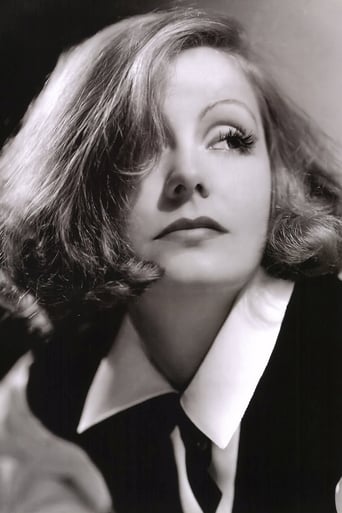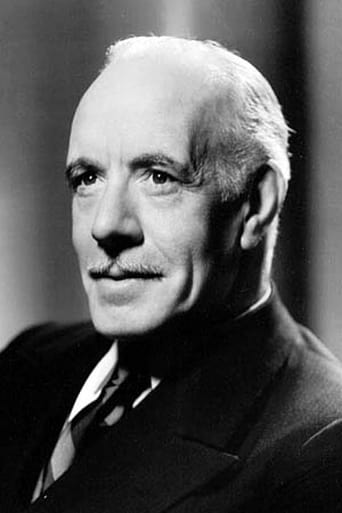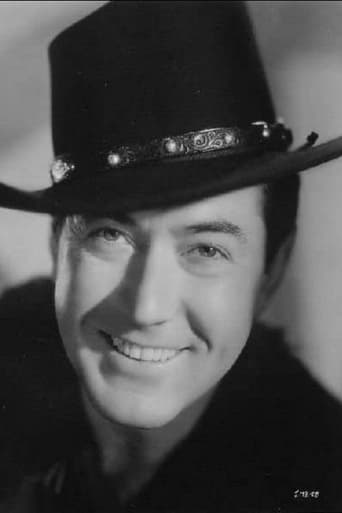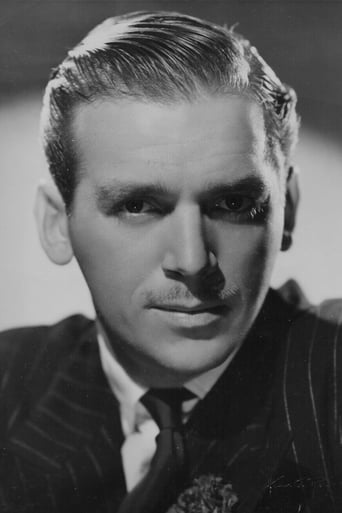Scanialara
You won't be disappointed!
BoardChiri
Bad Acting and worse Bad Screenplay
Livestonth
I am only giving this movie a 1 for the great cast, though I can't imagine what any of them were thinking. This movie was horrible
Ella-May O'Brien
Each character in this movie — down to the smallest one — is an individual rather than a type, prone to spontaneous changes of mood and sometimes amusing outbursts of pettiness or ill humor.
judy t
The film's theme is honor in its various guises and how concealing the truth to preserve a dead man's honor brings misery to all concerned. The opening subtitles tell us that Garbo/Diana is a gallant lady. The viewer needs to be told this for otherwise we would conclude that her suffering as well as the suffering caused others was needlessly brought about by her foolish error in judgment. Garbo is perfection in her shifting moods - first as a young woman in love, playful and happy with her true love, Gilbert, then when she makes that fateful mistake which she thinks brings honor to herself, and so on right up to her death 10 years later after her self-image of an honorable woman has been taken from her.Gilbert's role is subsidiary, not sympathetic, and of all things, boring. Most surprising, he lacks fire, There's no passion in his scenes with Diana, except in a late scene in his rooms where Diana breaks through his defenses, telling him she never said "I love you" to any of the other men in her life, only to Gilbert, and that makes her virtuous in Gilbert's code of morality. The actor who does exhibit fire is the young Douglas Fairbanks Jr, whose self-loathing is redirected to a passionate hatred of his sister.I liked Garbo's action in the reconciliation scene where she walks over to Gilbert's father with an unlit cigarette and when he strikes a match she takes out her lighter and lights it herself, thereby emphasizing that she will not bow again to his idea of honor. I also liked the director's choice of showing the widow Diana's 7-year exile in Europe through a series of newspaper photos and their captions. This expedient kept the story focused on the interactions of the main characters. And THE main character, Garbo, is so superb that the script problems make no difference to one's enjoyment of this flawed film.
evening1
Garbo is liberated enough to smoke in this film but her lifelong love never gathers the courage to oppose his father and wed her.Here we see the deadening effects of marriage for appearance's sake rather than authentic desire.I've never been taken much with pretty-boy John Gilbert. He strikes me as too perfect-looking to care much about. In this movie, the handsome Hobart Bosworth, who plays his father -- 61 when this was filmed but appearing older -- is far more interesting.I wonder if the real reason Sir Morton stood in the way of his son's romance was his own interest in Diana.In some ways this film doesn't hold together very well.It starts out with an almost slapstick sequence that doesn't go with the serious tenor of the rest of the film. And later, why would those bent on jailing David show up at his honeymoon suite in France and not arrest him on his home turf in Britain? And what was the significance of Garbo drawing the ace of spades before driving off into the night? Clearly she was depressed, but why the implication that a card pushed her over the edge? While the theme of frustrated love is interesting for a bit, this film ultimately peters out disappointingly.
kidboots
Michael Arlen's "The Green Hat" was the most sensational novel of its time. In 1924, the year it was published, it was the top selling novel. The story of a wild young widow with a notorious past, it bought London's Mayfair of the 1920s to life with it's rich tapestry of characters. It also shocked readers with allusions to homosexuality and sexually transmitted diseases. When MGM (of all studios) decided to make a movie of the novel - the name of the book or any allusion to it was not to be mentioned, hence the name "A Woman of Affairs". And it was definitely cleaned up.Diana, David and Neville have been friends since childhood, but Diana and Neville had a special bond. Diana Merrick (Greta Garbo) and her dissipated brother Jeffry (Douglas Fairbanks Jnr.) are determined to live their lives in the pursuit of pleasure, earning them a bad reputation. Jeffry worships David (Johnny Mack Brown) and is drinking himself to death because of what he perceives is Diana's offhand treatment of David. Douglas Fairbanks Jnr. gives the performance of his young career as the alcoholic Jeffry (in the book he and Diana were twins). Jeffry has an unhealthy hero-worship of David and Fairbanks seems to really get inside his character.Neville (John Gilbert) is offered a post in Egypt and is eager to take it as it means he and Diana can be married when he returns. Diana believes his father has organised the job to part them as he is very disapproving of her lifestyle. They decide to elope but Neville's father hears of it, hurries him off to Egypt and so prevents the marriage. Years of waiting has Diana turning to David. They marry but Diana does not return his love. He commits suicide on their honeymoon and it is implied that he has found out something horrible about her past. The title says "He died for - decency" and Diana puts up with a lot of allegations and rumour.Years pass and Diana is back in London to visit her critically ill brother, who has never recovered from David's death and is drinking himself into an early grave. Neville is about to marry giddy Constance (pretty Dorothy Sebastian), who proves during the film that she has just as much character and honour as the rest of them. Dr. Hugh Trevelyan (Lewis Stone) has always been Diana's protector and supporter and it is he who informs her of her brother's death (she has spent the night at Nevilles).Diana suffers a nervous breakdown and I think it is this hospital scene in which Greta Garbo lifts this film to it's highest sphere. Neville has sent roses to her room but when Diana awakes and finds them gone she deliriously wanders through the hospital in search of them. "I woke up - and you weren't there" says Diana as she crushes the flowers in her arms. Everyone in the scene (Gilbert, Sebastian, Stone) seems transfixed as Garbo goes through this astonishing performance. The film is not over yet. Sir Morton Holderness (Hobart Bosworth), Neville's father has never held a very high opinion of Diana. He learns the real reason for David's suicide - he was an embezzler and Diana gave up her reputation for his honour - not to mention paying off his debts secretly. For the last time Diana proves she is a "gallant lady" by driving her car into the tree that had always symbolized her and Neville's love and leaving Neville and Constance free to begin their lives together.Greta Garbo is mesmerizing - you can't watch anyone else while she is on the screen. John Gilbert shows none of the personality and passion that characterizes his acting - he definitely takes a backseat to Garbo in this movie. In case you are wondering the exquisite Anita Louise plays Diana as a child. Director Clarence Brown did a wonderful job with a scenario which couldn't be faithful to the book to appease the vigilant censor.Highly, Highly Recommended.
Spondonman
This is a beautifully crafted melodrama, well acted and with high MGM production values, but with moral values that nowadays may well be seen as belonging to another planet. Nevertheless once the historical perspective is in place this is still a simple timeless classic, one I've now seen a dozen times over the years.Very honourable woman falls in love with equally honourable man, much to his even more honourable father's disfavour. You might notice that understanding "Honor" is the key to understanding this film! Garbo and Gilbert were perfect for the roles (making this a lovely bookend for Flesh And The Devil) and both never looked more gleaming beautiful, although Garbo had a few odd costumes along the way. They had a couple of languid clinches, but this time the plot got in the way of these scenes becoming "hot". Lewis Stone had already dropped into his avuncular stereotype here, his was a marvellously hammy but key performance. Everyone undulates their way to a fitting climax and conclusion (although didn't Neville come back into the room to Constance rather fast after Diana told him ---- ?)All in all one of my favourite silent melodramas, strangely neglected nowadays - or is there no honour left?





